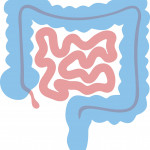Gastrointestinal woes—including diarrhea, acid reflux, heartburn, nausea, vomiting, gas and bloating—may be caused by HIV and also by the antiretrovirals (ARVs) used to treat the virus. Side effects of medications may occur only during the first few weeks or months of treatment, or they may persist. If side effects are bothering you, talk with your doctor; you may need to change your treatment regimen. Otherwise, check out some of the following suggestions. Caution: Make sure to discuss such remedies with your health care provider or pharmacists to be sure that they’re safe to take with your ARVs.
Diarrhea
Over the counter:
- Fiber supplements such as Metamucil
- Imodium (loperamide) (Caution: leads to high risk of constipation; has not been studied for safety with HIV medications)
Prescription:
- Mytesi (crofelemer) (formerly known as Fulyzaq)
- Lomotil (dephenoxylate/atropine)
Lifestyle changes:
- Be sure to stay hydrated; drink plenty of fluids.
- Try to avoid these likely culprits: spicy or greasy foods, raw vegetables and other hard-to-digest foods.
- Eat foods that absorb liquid, including flax meal, peeled apples, applesauce, bananas, rice, oatmeal, toast, oat bran and barley.
- Better manage stress.
- Avoid magnesium or magnesium-containing supplements, including magnesium-containing antacids, which may cause diarrhea.
- Avoid milk products when you have diarrhea.
Acid reflux and heartburn
Over the counter: (Caution: Many acid reflux/heartburn meds should not be combined with certain ARVs. Be sure to talk to your doctor or pharmacist first.)
Antacids (fast-acting, provide temporary relief):
- Maalox, Mylanta, etc. (aluminum hydroxide/magnesium hydroxide/simethicone)
- Tums, Rolaids, etc. (calcium carbonate)
- Alka-Seltzer, Bromo-Seltzer, etc. (sodium bicarbonate) (Caution: Sometimes bicarbonate makes things worse.)
H2 blockers (slower-acting, but provide longer-lasting relief):
- Axid (nizatidine), Pepcid (famotidine), Tagamet (cimetidine), Zantac (ranitidine)
Proton pump inhibitors (daily medication, provide continuous treatment):
- Nexium (esomeprazole), Prilosec (omeprazole)
Lifestyle changes:
- Avoid certain foods (you are your best judge). Major culprits include foods that are spicy, high in fat, fried or acidic. Alcohol, chocolate, soda, coffee and black tea may also cause heartburn.
- Eat frequent small meals and avoid eating before bedtime.
- Elevate the head of your bed 30 degrees.
- Cut back on or quit smoking.
Nausea and vomiting
Over the counter:
- Emetrol (cola syrup)
Prescription:
- Not used often these days; switching ARVs is a more likely option
Lifestyle changes:
- Be careful with non-steroidal anti-inflammatory drugs, including aspirin and ibuprofen, which can irritate the digestive system.
- Eat smaller, more frequent meals.
- Eat soup and bland food.
- Try dry crackers and pretzels.
- Consume ginger-containing products such as ginger ale, tea or candy.
- Take HIV meds with food (except Sustiva and Atripla).
Gas and bloating
Over the counter:
- Gas-X (simethicone
Lifestyle changes:
- Avoid certain foods (you are your best judge). Major culprits include garlic, broccoli, cauliflower, onions, lentils, beans and brussels sprouts, as well as dairy for some people.
Other potential causes of GI problems:
- Crohn’s disease
- Ulcerative colitis
- Irritable bowel syndrome
- Bacterial, parasitic or viral infections
- Ulcers
- Liver disease







Comments
Comments